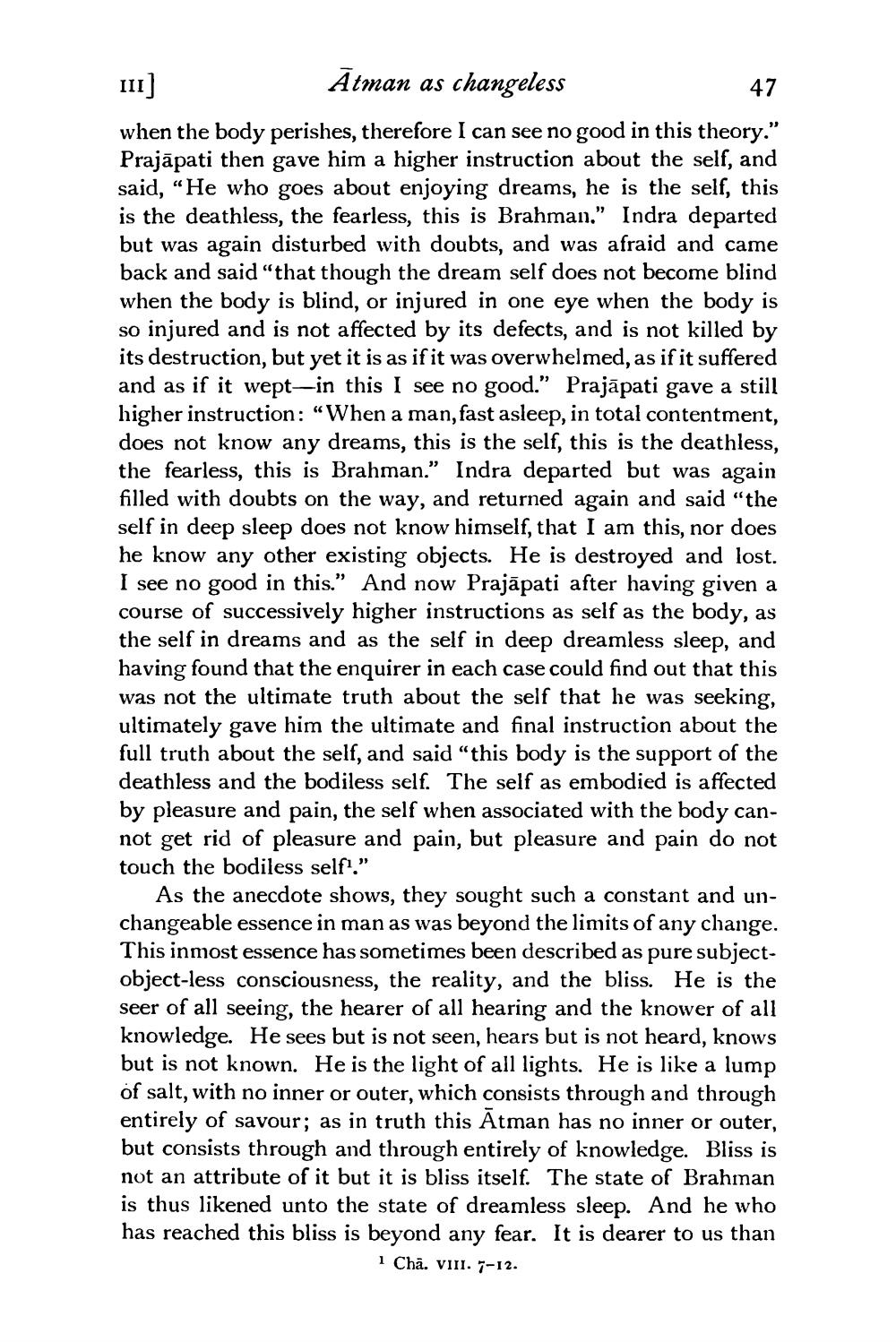________________
III]
Atman as changeless
47
when the body perishes, therefore I can see no good in this theory." Prajapati then gave him a higher instruction about the self, and said, "He who goes about enjoying dreams, he is the self, this is the deathless, the fearless, this is Brahman." Indra departed but was again disturbed with doubts, and was afraid and came back and said "that though the dream self does not become blind when the body is blind, or injured in one eye when the body is so injured and is not affected by its defects, and is not killed by its destruction, but yet it is as if it was overwhelmed, as if it suffered and as if it wept-in this I see no good." Prajapati gave a still higher instruction: "When a man, fast asleep, in total contentment, does not know any dreams, this is the self, this is the deathless, the fearless, this is Brahman." Indra departed but was again filled with doubts on the way, and returned again and said "the self in deep sleep does not know himself, that I am this, nor does he know any other existing objects. He is destroyed and lost. I see no good in this." And now Prajapati after having given a course of successively higher instructions as self as the body, as the self in dreams and as the self in deep dreamless sleep, and having found that the enquirer in each case could find out that this was not the ultimate truth about the self that he was seeking, ultimately gave him the ultimate and final instruction about the full truth about the self, and said "this body is the support of the deathless and the bodiless self. The self as embodied is affected by pleasure and pain, the self when associated with the body cannot get rid of pleasure and pain, but pleasure and pain do not touch the bodiless self1."
As the anecdote shows, they sought such a constant and unchangeable essence in man as was beyond the limits of any change. This inmost essence has sometimes been described as pure subjectobject-less consciousness, the reality, and the bliss. He is the seer of all seeing, the hearer of all hearing and the knower of all knowledge. He sees but is not seen, hears but is not heard, knows but is not known. He is the light of all lights. He is like a lump of salt, with no inner or outer, which consists through and through entirely of savour; as in truth this Atman has no inner or outer, but consists through and through entirely of knowledge. Bliss is not an attribute of it but it is bliss itself. The state of Brahman is thus likened unto the state of dreamless sleep. And he who has reached this bliss is beyond any fear. It is dearer to us than
1 Cha. VIII. 7-12.




